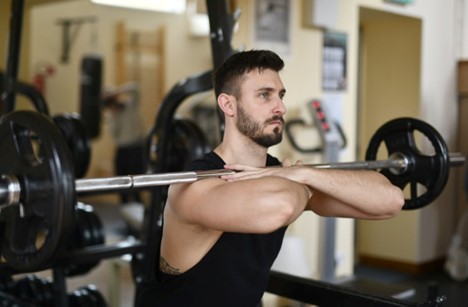Excelling in academics is vital for overall success. However, it leads people to try all they can to create more time for their studies. Some pull an all-nighter, eat fast food to save time, and barely make time for exercise or social connections. While these habits may seem okay in the short run, they are disastrous as they negatively affect overall body health.
It’s crucial to remember that without proper health, learning would not occur efficiently. The body requires excellent emotional, mental, and physical health for an individual to learn. Basically, no health means no learning since the two are interdependent.
Daily study routines that do not take into consideration the health aspect of a person can lead to serious physical, mental, and physical issues. It includes musculoskeletal problems, fatigue, stress, burnout, anxiety, and, in the worst cases, mental breakdown, cognitive overload, and forgetfulness. All these adverse effects can be avoided by incorporating healthy habits into your study routine. Here are some tips that you can use to integrate healthy habits into your study routine.
Fuel Your Body Right
Fatigue is a big enemy of achieving high productivity. It’s one of the main reasons you can get stuck with an assignment and decide to pay for essay. How and what you eat directly affects how quickly you’ll get fatigued when studying. The first tip for eating right is to have the main meals: breakfast, lunch, and dinner. Main meals give your body the energy to sustain you during the day; therefore, you should not skip them.
On average, an hour or 45 minutes is good for having main meals. If you are swamped with work, you can always bring a packed lunch. It is vital that you focus on eating healthy foods. If you are busy the whole week, have meal prep on the weekends and store the food to make sure you have healthy meals ready enough to last you for a week. Remember, you need to eat a balanced diet with the three main food categories: proteins, carbohydrates, and vitamins.
The second tip is to eat healthy snacks during study breaks. Most students tend to go for high-sugar snacks such as energy drinks to help boost their energy. Once in a while, it is okay, but regularly, it is disastrous. According to studies, too much sugar in the food travels to the brain and has been shown to reduce brain functionality by causing brain atrophy. It is a condition whereby the blood vessels shrink, reducing to lower blood flow, which in turn affects focus, retention, and recalling information and, in the worst case, triggers vascular dementia. So, ditch snacks with too much sugar and substitute them with healthy options. Examples of healthy snacks include nuts, fruits, or high-protein snacks.
Another key way to fuel the body right is by staying hydrated. Dehydration reduces focus. It can also cause headaches and fatigue. To keep hydrated, keep a water bottle nearby. Set timers on your watch to sip water every 30 minutes instead of waiting to be fully thirsty. If it’s hard to drink plain water, you can add some lemon to make it tasty.
Get Adequate Sleep
The body needs approximately 6 to 8 hours of sleep for optimal functioning, more so cognitive functioning. Lack of sleep reduces concentration and information retention. One way to ensure you get adequate sleep is to take power naps between your study sessions. It will allow the body to relax and rejuvenate.
Additionally, go to bed early and practice sleep hygiene. You can do it by setting bedtime alerts. Also, keep away from your gadgets when it’s bedtime; you can end up scrolling for one hour or two or even the whole night. So, be disciplined, and your body will thank you in the morning.
What’s more, avoid pulling an all-nighter. While the hard work is commendable, it can have severe effects on your health. Instead, plan your academic work to ensure you are not late on deadline submissions and have ample time to prepare for tests in advance instead of trying to use up sleeping hours to study.
Take Breaks When Studying
It’s normal to try to get work done with no breaks to save time. While this may work for physical tasks, it is not advisable for work that demands mental and cognitive focus, like studying. Thus, you should have breaks during your study sessions. Taking breaks helps to prevent mental fatigue, thus improving overall productivity. Studies have shown that a typical human brain can maintain focus for 45 minutes, after which the focus gradually reduces. Continuing to do the task after the brain loses focus is usually counterproductive, often leading to poor quality work and reduced retention.
Use timers and the Pomodoro technique to have study breaks. Based on your concentration, the focus duration varies. However, do not go for more than two hours without a break. Set an alert, and when the timer rings, leave the study space, take some fresh air, and do deep breathing exercises before resuming your studies.
Practice Mindfulness and Stress Management
Another amazing way to incorporate a healthier lifestyle into your study routine is to engage in activities that help refresh and empty the mind. To do so, take time to meditate and practice deep breathing exercises in between your study sessions. Clear a small space in your study area, get comfortable, close your eyes, and take a few deep breaths – 5 to 10 minutes can make a big difference.
Exercise
No matter how busy you are, always find time for physical exercises. Do not overcomplicate it. Regular stretches or workouts that help your body move, such as rope jumping, jogging, biking, and press-ups, will get the job done. They will boost blood circulation and reduce stress in your muscles due to sitting for lengthy periods. Exercising also stimulates the release of hormones that uplift mood. It will help you focus more, making your study session more productive.
Wrapping Up
For learning to happen effectively, one must be healthy. So, in your learning process, ensure that you take care of your body by embracing good habits that will enhance your health. It is not necessary to over-complicate things; do the simple things like taking short breaks from studying, napping, eating healthy meals and snacks, exercising, and practicing mindfulness.
WATCH TOP VIDEOS FROM NIGERIAN TRIBUNE TV
- Relationship Hangout: Public vs Private Proposals – Which Truly Wins in Love?
- “No” Is a Complete Sentence: Why You Should Stop Feeling Guilty
- Relationship Hangout: Friendship Talk 2025 – How to Be a Good Friend & Big Questions on Friendship
- Police Overpower Armed Robbers in Ibadan After Fierce Struggle







